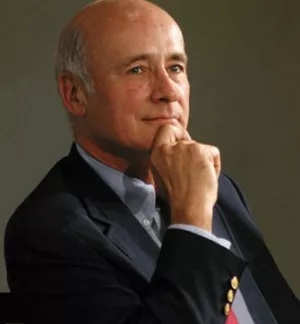Summary
In the era of Kennedy and Khrushchev, power was expressed in terms of nuclear missiles, industrial capacity, numbers of men under arms, and tanks lined up ready to cross the plains of Eastern Europe. By 2010, none of these factors confer power in the same way: industrial capacity seems an almost Victorian virtue, and cyber threats are wielded by non-state actors. Politics changed, and the nature of power—defined as the ability to affect others to obtain the outcomes you want—had changed dramatically. Power is not static; its story is of shifts and innovations, technologies and relationships.
Joseph Nye is a long-time analyst of power and a hands-on practitioner in government. Many of his ideas have been at the heart of recent debates over the role America should play in the world: his concept of "soft power" has been adopted by leaders from Britain to China; "smart power" has been adopted as the bumper-sticker for the Obama Administration's foreign policy. This book is the summation of his work, as relevant to general readers as to foreign policy specialists. It is a vivid narrative that delves behind the elusive faces of power to discover its enduring nature in the cyber age.
A Note from Joseph Nye
Conventional wisdom says the global balance of power is likely to change in the twenty-first century. How would we know?
First, one must beware of misleading metaphors of organic decline. Nations are not like humans with predictable life spans. For example, after Britain lost its American colonies at the end of the eighteenth century, Horace Walpole lamented Britain's reduction to "as insignificant a country as Denmark or Sardinia." He failed to foresee that the industrial revolution would give Britain a second century of even greater ascendancy. Rome remained dominant for more than three centuries after the apogee of Roman power. Even then, Rome did not succumb to the rise of another state, but died a death of a thousand cuts inflicted by various barbarian tribes. Indeed for all the fashionable predictions of China, India, or Brazil surpassing the United States in the next decades, the greater threats may come from modern barbarians and non-state actors.
At an even more basic level, what will it mean to wield power in the cyber world of the twenty-first century? What resources will produce power? In the sixteenth century, control of colonies and gold bullion gave Spain the edge; seventeenth century Netherlands profited from trade and finance; eighteenth century France gained from its larger population and armies; while nineteenth century British power rested on its primacy in the industrial revolution and its navy. Conventional wisdom has always held that the state with the largest military prevails, but in an information age it may be that the state (or non-state) with the best story wins.
Most current projections of a shift in the global balance of power are based primarily on one factor-projections of growth in the gross national product of different countries. They ignore the other dimensions of power that are discussed in this book ...
Read the press release: http://belfercenter.ksg.harvard.edu/publication/20690/
Nye, Joseph. “The Future of Power.” Public Affairs, February 1, 2011



